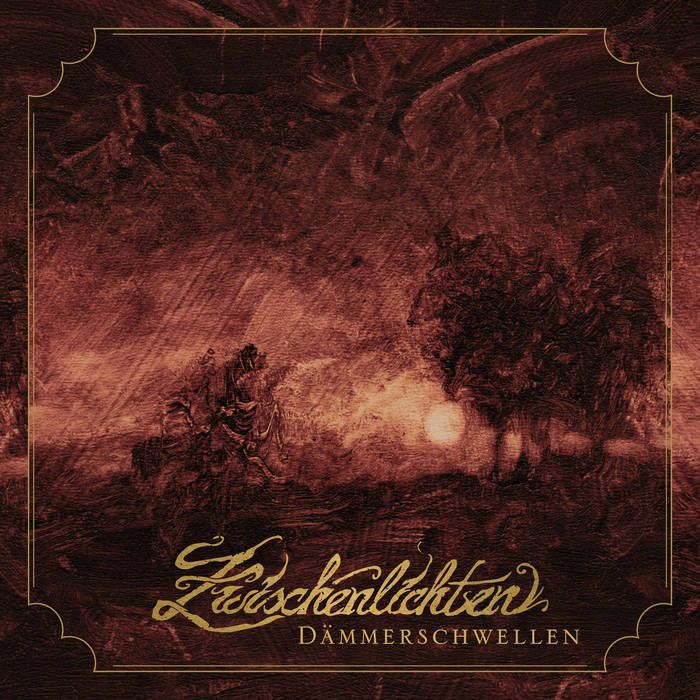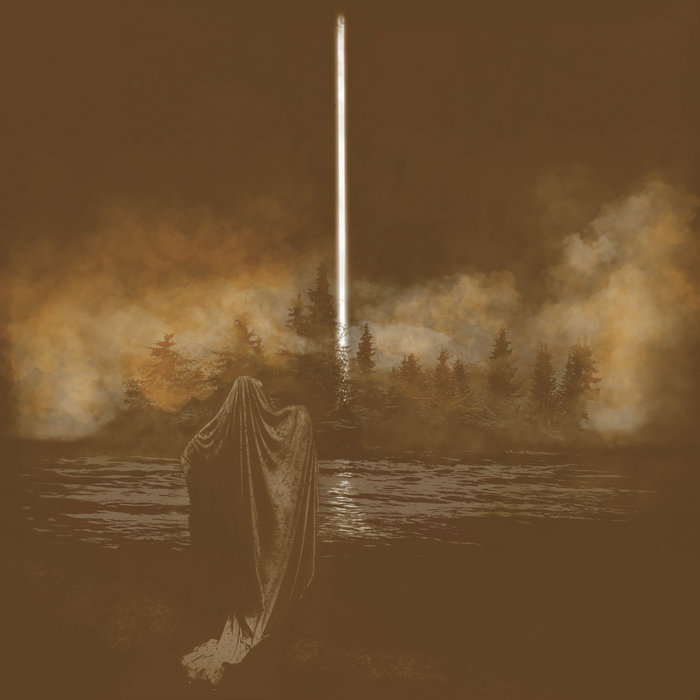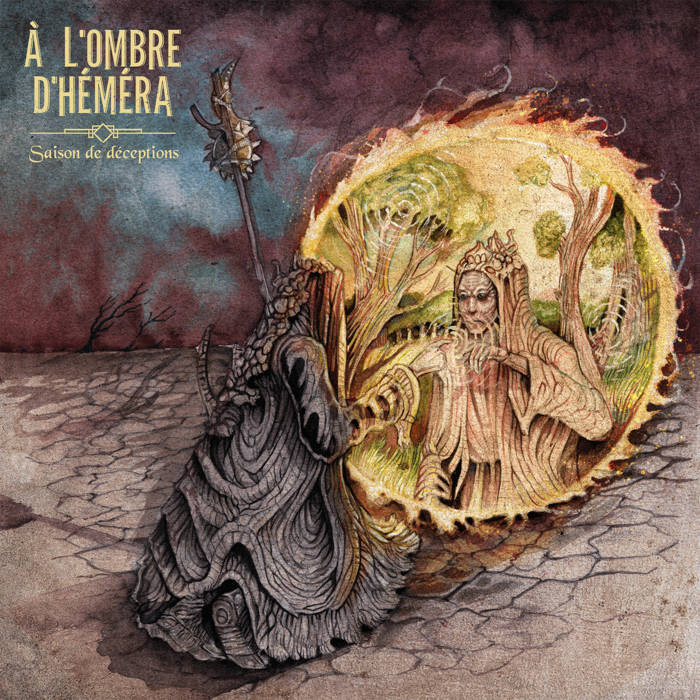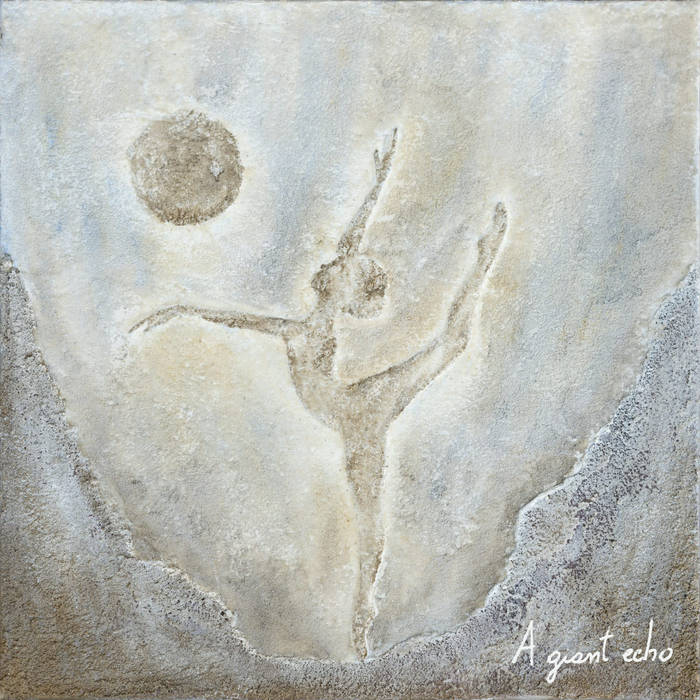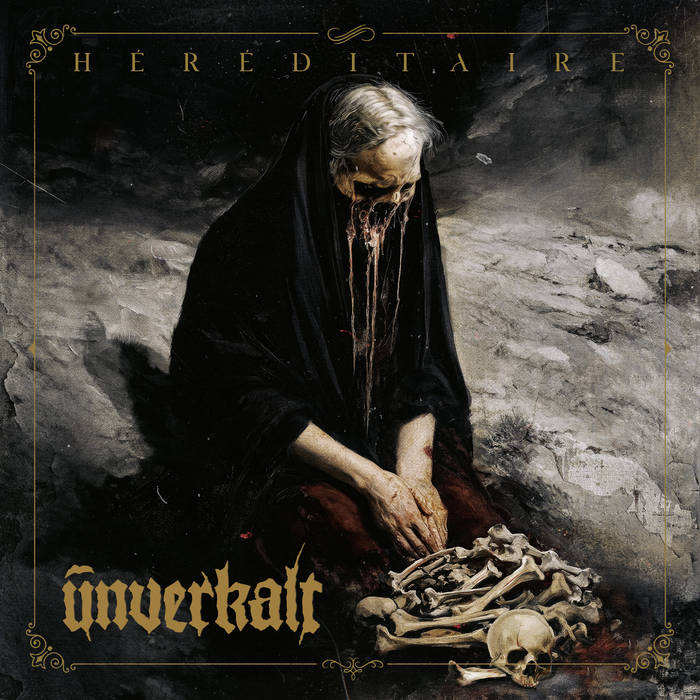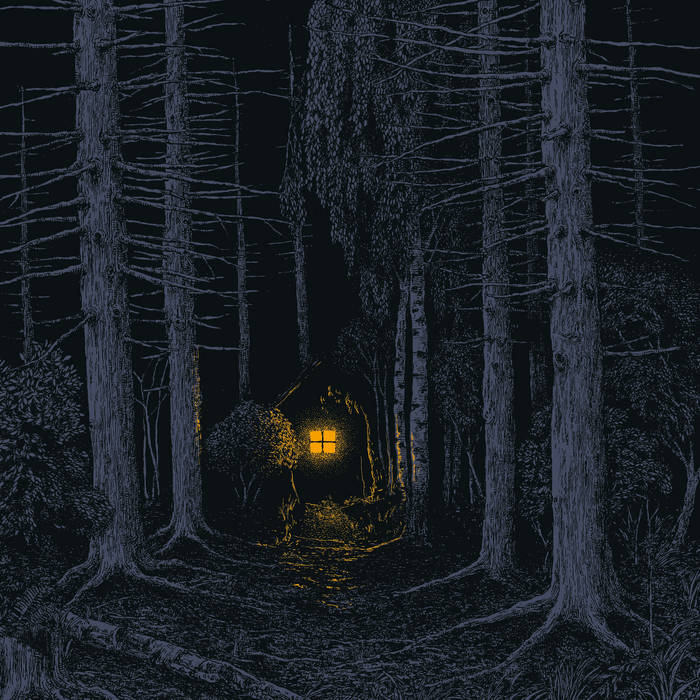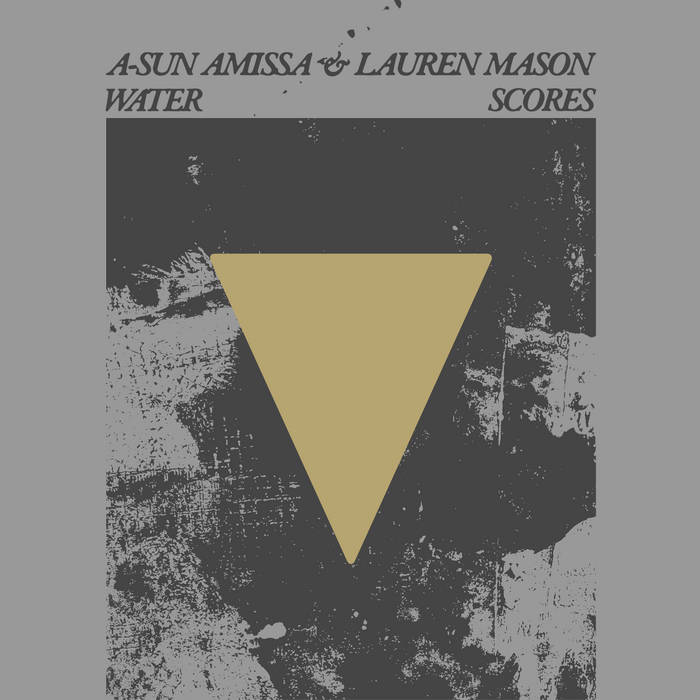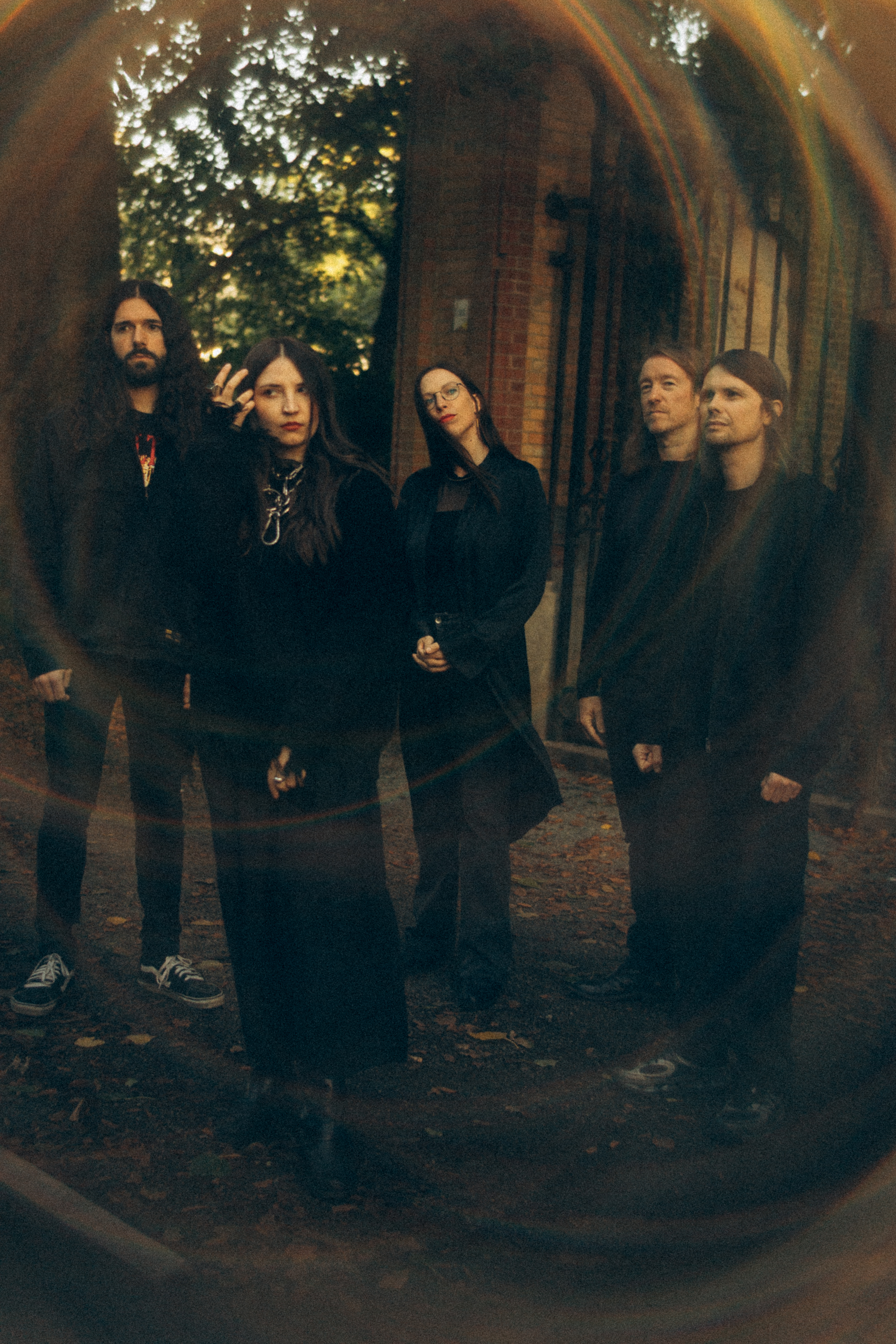A new sparkling star can be found adorning the firmament stretched out by German Dark Folk or Neofolk and that star is Zwischenlichten, and the gloom illuminating their ascend is their debut full-length Dämmerschwellen. If acoustic guitars are not your thing, please pass along. But if you like seminal records initiating a round dance in the shadows of the cabin deep in the forest behind the village – then this record will be the candle to your autumn and winter flames.
The farmer is out on the fields and sees the sun setting in the far-off distance behind the hills to the east. The evening Zwischenlichten are starting and he knows that he cannot go home for another hour because the field needs plowing.
For VoS-followers, the name MOSAIC will ring a bell, and Zwischenlichten is now Martin Van Valkenstijn’s latest project in collaboration with Nico Schwappacher and Empyrium-mastermind Markus Stock, the latter mastered the record which Martin recorded and mixed himself. The basis to all songs by Martin and Nico are the acoustic guitar pickings and melodies that lay the near-medieval, or maybe early-Baroque foundations on which both paint pictures of times long gone. Nevertheless, do not expect a band lost in reverie for the times centuries ago, they certainly are not. That also shows in the fact that they also incorporate some more electronic sounds and guitar “solos” into their soundscapes. Of course, given the genre, one can already assume that most tracks have a certain tranquil quality and hence calm the listener’s soul.
He slowly bends down as the sun is already so low now that he cannot see his plow anymore but he needs to do the last two rows and thus needs some light that only his petrol lamp can provide which he is now igniting.
One must admit that Nico’s voice has a certain timbre that can switch between a kind of distant neutrality and the warm hug of your best friend. A perfect example is the title track where he proclaims most of the lines very clearly, but sometimes has one single line that is a single pitch brighter, closer stretching out his hand to us as if trying to say that everything will be good in the end even if some things might look pretty grim. The flute that one can hear in the background at about the half-way mark is another one of these moments that can only be described with camp-fire romanticism. And yes, that is exactly what this record tries to purvey. A close proximity to mother nature and her bosom which nurtures both – our body and soul. One can also see this connection between man and his surroundings in song titles like ”Heimat”, “Lichtmesstag”, “Herbstfeuer” or ”Winterstille”.
The last rows have been worked and he turns off the lamp, slowly goes back over the hills to the two dimly lit windows in the very far-off-distance where his family is awaiting him.
The truly emotional connection between man and his natural surroundings is ever-present on this record and lines like ”Brichst dich im Holz / und hallst wider vom Feld / Verwehst mit dem Wind” (”Seelenwetterläuten”) exemplify this. The record is the result of long hikes in the woods of the Franconian Forest and the Fichtel Mountains, the two parts in Germany’s middle which Nico and Martin call their home. The pure romantic positivism that the opener ”Heimat” radiates is bright enough to light every small or big chapel that the wanderers can find in these regions along the former border between East and West Germany. The quality of this song and especially Nico’s voice with that little bit of echo on it is very simple: It draws you into these parts and along the fields at a time when electricity and hectic modern life were unthinkable. ”Heimat / Du Meine Erde / Du Mutter, einziger Ort / Heimat / Du wundervolle”. It is not a coincidence that this is a project by two musicians who could also be called historians as both are really interested in the history and legends of their region.
He has arrived home in the early evening and puts his petrol lamp down, takes off his clothes, goes to the table, slowly lights a match, holds it in his hands for a second, looking at it. And then he bows down, just a tiny bit, in order to light the two candles on the table. Then he beholds the amber light for a second and looks at his family. Life is good out here.
One notion though: when Nico sings ”Ich lebe mich am Leben tot” in ”Duldsamkeit” then we should not take this as a sign of suicidal thoughts but rather as a ray of hope. Life is there to be lived, wherever we are, whatever we do. We should live it to the fullest, experiencing it in a very conscious way, not just throwing it away. However, we should also not fear its end as it will come anyway, and by going through life with perceiving eyes and an open heart, we do not have to fear death, for it is wonderful. Especially at home.
They all sit down and sometimes silently, sometimes talkative share their meal, happy to be in each other’s company. This is home. This house and this soil. And these people.
Zwischenlichten, the moment to reflect upon life especially during the hours of the day which glide from bright day to dark night, the opposite of the madrugada of the mornings. A new band to calm our nerves, brimming because of the hectic nature of our time. Nico and Martin can slow down our heartbeat in a heartbeat by the warmth of their arrangements telling us with their music “Life is good. Do not worry. Life. Consciously.” Maybe we should listen a bit more.

